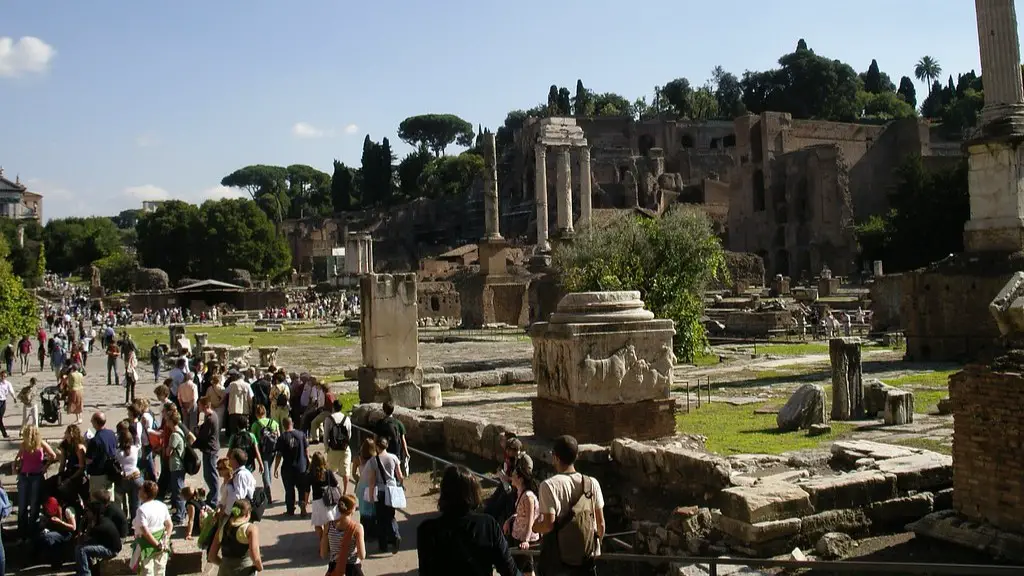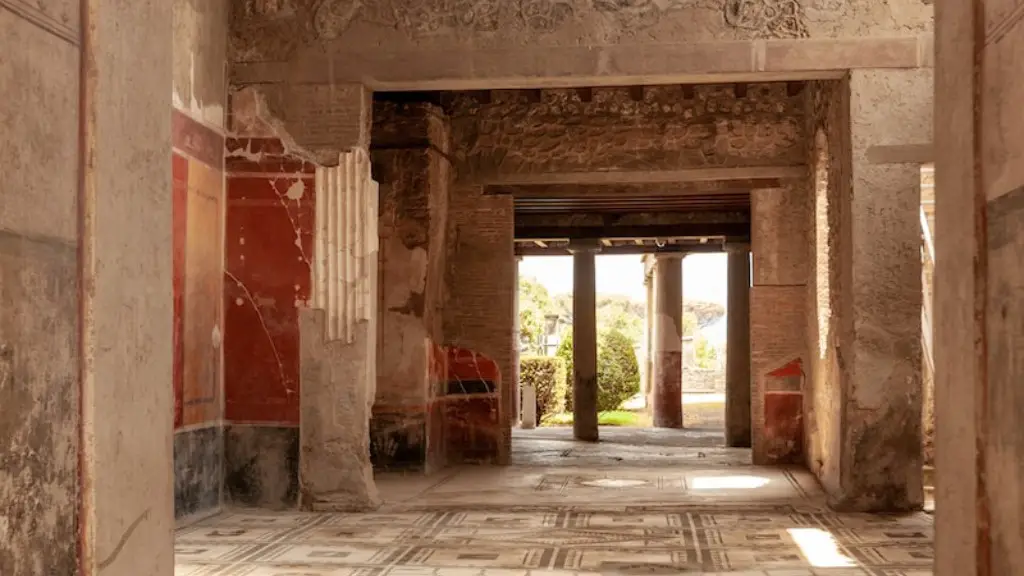The History of Ancient Rome
Ancient Rome has been studied by many different experts throughout the years due to its huge impact on modern society. The Roman Empire was one of the most powerful forces in Western Civilization, leaving its mark in language, engineering, law, and architecture. This article will explore why ancient Rome is such an important topic of research and the context in which it occurred.
The Romans were an ancient Italic people who inhabited the city of Rome and its surrounding area during the 8th century BCE. During its peak, the Roman Empire encompassed vast areas of the Mediterranean and Europe and held power and influence throughout the world. Roman architecture, engineering, law, and language influenced many later cultures, leaving traces to this day.
Ancient Rome was a complex, multi-ethnic state, which made for an interesting study for scholars. Roman culture was heavily influenced by the Greeks and earlier civilizations, resulting in a unique, diverse culture that included both traditional beliefs and progressive social and political ideas. Through the study of this expansive, long-lasting empire, researchers can gain meaningful insight into how societies and empires developed, how they were maintained, and how their legacy has lasted through the centuries.
The Bridging of Ancient and Modern Times
Ancient Rome plays an important role in bridging the gap between the ancient world and the contemporary world. By studying it and the relevance of its legacy in today’s world, we can better understand the history and development of today’s society. Studying Rome allows researchers to learn more about past societies and compare them to ours, to gain an understanding of how the world has changed and evolved over time.
An important part of studying Rome is to understand the ways in which its legacy still affects our lives today. Many of the Roman laws and practices in politics, law, and society have their roots in the Roman Empire, and are still evident in modern times. For example, the concept of democracy, long seen as an important example of human rights and civil liberties, has its origin in the Roman Republic. The study of Rome, its people and its legacy, allows us to gain a richer understanding of these concepts, and to determine how we may want to utilize them in our modern world.
The Richness of Roman Literature
In addition to its massive impact on modern society, Rome is an incredibly rich source of literature, both in terms of its content and its literary style. Classical Latin literature is some of the most famous in the world and has been studied for centuries by scholars. Examples of Roman literature include Virgil’s Aeneid, Sallust’s Catiline Conspiracy, and Ovid’s Metamorphoses, which are all considered masterpieces of Latin literature.
The study of Roman literature provides insight into the culture and values of the Roman Empire. It gives us an opportunity to see how the people at that time expressed themselves, their hopes and fears, their joys and sorrows. It helps us to understand how the ideas of the past were disseminated, expressed, and understood by the people living at that time.
The Significance of Roman Architecture
Roman architecture was a major influence on the development of the Western world and it can still be found in many places today. It has had a large impact on the design of cities, monuments, and other places of historical and cultural significance. Studying Roman architecture helps us gain an understanding of the evolution of Western design, and also helps us to appreciate the beauty of past eras.
From the Pantheon, to the Colosseum, to the aqueducts, to the numerous palaces and villas, Roman architecture was incredibly varied and often very impressive. The Roman architects were incredibly innovative, developing new forms and materials that were extremely influential on later architecture. By studying Roman architecture, we can gain an understanding of how Rome influenced the development of Western architecture, and how it still does today.
The Influence of Roman Politics
The Roman Republic and later the Roman Empire were central to the development of Western political thought and government, and the study of their politics and ideas still informs how governments operate today.
At the heart of Roman political thought and activity were central concepts such as patriotism, glory, and virtue. Ancient Roman politics focussed on the individual and their actions, exploring the importance of personal virtue and reputation, and the concept of a collective good. These ideas have been essential to the formation of modern democracy and many of the government systems and values we have today.
By studying Roman politics and its influence on the modern world, we are able to gain insight into the development of government and politics in general, and how the ideals of the Roman Empire have had a lasting impact on our lives today.
The Value of Roman Education
From the early days of the Republic, education was an important part of Roman life, playing a crucial role in maintaining the status quo. Education was seen as a way to ensure that the ruling class had the necessary knowledge and skills to guide the Republic, and it was highly valued by those in power.
By studying the education system of the Roman Republic and its legacy, we can gain an understanding of the values and norms that were held at the time, and how these impacted the development of modern education systems. It is also an important resource in learning about how knowledge, values, and skills were transmitted across generations.
The Effectiveness of Roman Engineering
The Roman engineers were renowned for their use of concrete and innovative engineering techniques, allowing them to construct large monuments and buildings that have endured over time. By studying Roman engineering, we can gain an understanding of their process and how they were able to achieve their impressive works of architecture.
The use of Roman engineering techniques has had a significant influence on the design and construction of buildings and monuments in the modern world. By studying Rome and its engineering techniques, we can better understand how later societies have adapted and improved upon them, and envision what may be possible in the future.
The Relevance of Roman Language
Latin, the language of ancient Rome, is not only an important subject for linguists, but also for all those interested in the history and culture of Rome. Latin was the language of the Roman Empire and its ruling class, and its influence can still be seen in language and literature from the Middle Ages to the present day.
Learning Latin can provide insight into how a once-powerful language shaped our modern world, and how its sounds and structures are still filtered through our languages today. Studying Latin can also provide a deeper understanding of Roman literature, philosophy, and culture, as Latin is at the core of much of the works of Roman authors and thinkers.
In Conclusion
The study of Ancient Rome is vital to understanding the impact Rome has had on the world today, and the ways its legacy has endured over the centuries. Rome is an essential source of knowledge, insight, and ideas, allowing us to bridge the gap between Ancient and Modern societies. From politics to architecture, literature to engineering, and language to education, Ancient Rome offers us a unique opportunity to explore and gain an understanding of the world we live in today.


